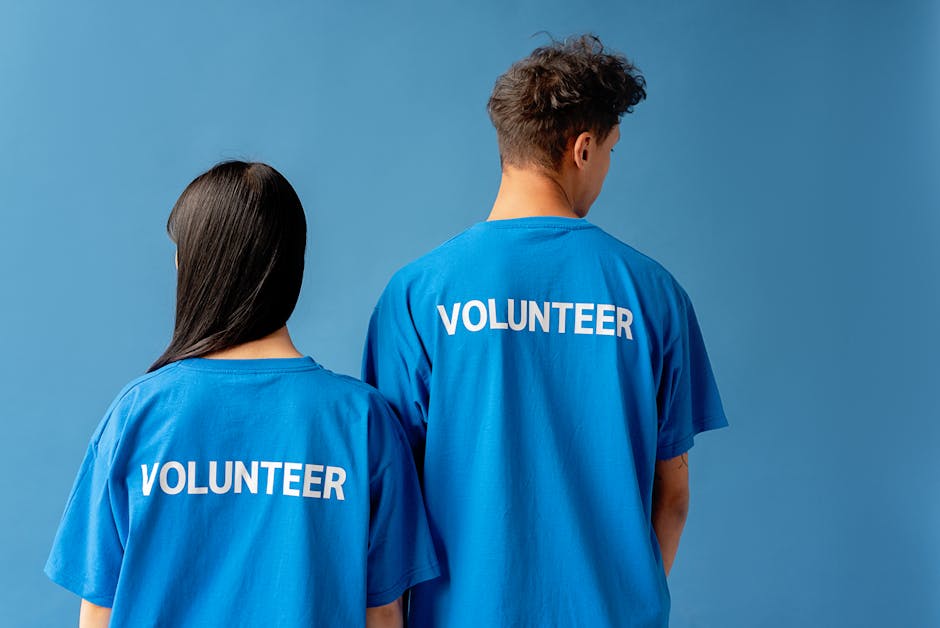Creating a balance between giving and receiving in friendships is like walking a tightrope—you need to stay steady, or you risk falling into an unhealthy dynamic. Friendships thrive on mutual respect and shared effort, but when one person gives too much or takes too much, the relationship can start to feel lopsided.
If you’ve ever felt drained from always being the giver or guilty for taking more than you give, you’re not alone. This post will help you understand why balance matters, how to recognize unhealthy patterns, and how to create friendships that feel fair and fulfilling for everyone involved.
Key Takeaways
- Friendships need a balance of giving and receiving to stay healthy.
- Over-giving can lead to burnout, resentment, and one-sided relationships.
- Setting boundaries and communicating openly are essential for balance.
- Intentional generosity, rooted in mutual respect, strengthens friendships.
Understanding the Importance of Balance in Friendships
The Concept of Giving and Receiving in Relationships
Friendships are like a dance—sometimes you lead, and sometimes you follow. Giving might look like offering emotional support, lending a hand, or simply being there when your friend needs you. Receiving, on the other hand, means allowing others to support you, listen to you, and show up for you.
When both giving and receiving flow naturally, friendships feel effortless. But when one person is always giving and the other is always taking, it can create tension and imbalance.
Why Balance Is Essential for Healthy Friendships
Balance is the glue that holds friendships together. It ensures that both people feel valued and appreciated. When you give too much without receiving, you might feel unappreciated or taken for granted. On the flip side, if you only take, your friend might feel used or undervalued.
Healthy friendships are built on mutual respect and shared effort. If you’re curious about how respect plays a role in friendships, check out this article.
The Consequences of Imbalance in Friendships
Imbalance can sneak up on you. Maybe you start to feel exhausted from always being the one to initiate plans or offer help. Or perhaps your friend begins to pull away because they feel like they’re doing all the heavy lifting.
Over time, these patterns can lead to resentment, frustration, and even the end of the friendship. Nobody wants that, right?

Recognizing and Addressing Over-Giving
The Cycle of Over-Investment and Its Impact
Over-giving often starts with good intentions. You want to help, support, or make your friend happy. But when you give too much, it can lead to burnout and resentment.
Burnout and Resentment from Over-Giving
Imagine pouring water from a pitcher into a glass. If you keep pouring without refilling the pitcher, you’ll eventually run out of water. The same goes for your energy and emotional resources.
When you give too much without receiving, you might start to feel drained, frustrated, or even resentful.
The Pitfalls of Over-Involvement in Friendships
Being overly involved in your friend’s life can also backfire. You might feel responsible for their happiness or problems, which can be overwhelming. Plus, it can make your friend feel smothered or dependent.
The Consequences of Being a “Yes Man”
Saying “yes” to everything might seem like a way to be a good friend, but it can actually harm the relationship. When you agree to things you don’t want to do, you might feel resentful later. And your friend might not even realize they’re asking too much.
Understanding Your Motives for Generosity
Ask yourself: Why do I give so much? Is it because I genuinely want to, or because I feel obligated? Understanding your motives can help you set healthier boundaries.

Establishing Healthy Boundaries
Avoiding Over-Dependence in Friendships
Boundaries are like fences—they protect your energy and help you maintain a healthy balance. Without them, friendships can become one-sided or overly dependent.
Naming Your Needs as an Act of Self-Love
It’s okay to have needs. In fact, expressing your needs is a form of self-love. If you’re always giving without asking for anything in return, your friend might not even realize what you need.
Getting Support to Balance Generosity with Boundaries
If setting boundaries feels hard, you’re not alone. Many people struggle with this. But remember, boundaries aren’t walls—they’re bridges to healthier relationships. For more tips on building strong friendships, check out this guide.

Building Reciprocal Relationships
Basing Generosity on Mutualism
Mutualism is the idea that both people benefit from the relationship. In friendships, this means giving and receiving in a way that feels fair and natural.
Finding Equilibrium in Giving and Receiving
Think of friendship as a seesaw. When both people put in equal effort, the seesaw stays balanced. But if one person does all the giving, the seesaw tips, and the balance is lost.
Adjusting the Energy Exerted to Maintain Balance
Sometimes, maintaining balance means adjusting how much energy you put into the friendship. If you’re always the one reaching out, try stepping back and seeing if your friend makes an effort.

Fostering Authenticity and Communication
The Struggle with Authenticity in Friendships
Being authentic means showing up as your true self, flaws and all. But this can be hard if you’re afraid of being judged or rejected.
Open, Honest, and Compassionate Communication
Good communication is the backbone of any friendship. If something feels off, talk about it. Be honest but kind. For example, you could say, “I feel like I’m always the one reaching out. Can we work on making this more balanced?”
The Breaking Point and Reevaluating Friendship Dynamics
Sometimes, despite your best efforts, a friendship might not work out. And that’s okay. Letting go of a one-sided friendship can make room for healthier, more balanced relationships.
Intentional Generosity in Friendships
Aligning Generosity with Personal Values
Generosity should come from a place of love and alignment with your values, not guilt or obligation.
Being Intentional with Acts of Giving
Instead of giving out of habit, think about what your friend truly needs. Maybe it’s a listening ear, a thoughtful gift, or simply your time.
Accepting What Is and Fostering Healthier Interactions
Not every friendship will be perfectly balanced, and that’s okay. The goal is to create relationships that feel good for both people. For more on showing appreciation in friendships, check out this article.

Creating a balance between giving and receiving in friendships isn’t always easy, but it’s worth the effort. By setting boundaries, communicating openly, and practicing intentional generosity, you can build friendships that are not only balanced but deeply fulfilling.
Remember, friendships are a two-way street. When both people give and receive with an open heart, the road ahead is smooth and full of joy.
FAQ: Finding Harmony in Giving and Receiving in Friendships
Why is it important to balance giving and receiving in friendships?
A healthy balance ensures mutual respect, trust, and emotional well-being. It prevents feelings of resentment or being taken for granted, fostering a stronger, more fulfilling bond between friends.
How can I tell if my friendship is unbalanced?
Signs of imbalance include one person always initiating contact, offering support, or making sacrifices while the other rarely reciprocates. Reflect on how both parties contribute emotionally, mentally, and practically to the relationship.
What are some ways to give more in a friendship without feeling overwhelmed?
Start by offering small, meaningful gestures like listening attentively, showing appreciation, or helping with minor tasks. Set boundaries to ensure you’re not overextending yourself while still being a supportive friend.
How can I communicate my needs if I feel I’m giving too much?
Use open, honest, and non-confrontational language. Express how you feel and what you need, emphasizing the value of the friendship and your desire to maintain its health and balance.
Is it okay to ask for more support from a friend?
Yes, it’s perfectly okay. Friendships thrive on mutual understanding and support. Politely and clearly express your needs, ensuring your friend understands how they can help without feeling pressured.
What if my friend doesn’t respond well to my concerns about imbalance?
If your friend is unwilling to address the imbalance, it may be time to reassess the friendship. Healthy relationships require effort and understanding from both sides. Consider seeking advice or focusing on friendships that feel more reciprocal.
How can I ensure I’m not unintentionally taking more than I give?
Regularly reflect on your actions and contributions. Ask yourself if you’re showing appreciation, offering support, and being present in your friend’s life. Open communication can also help clarify any misunderstandings.
Can friendships survive long-term imbalances in giving and receiving?
While some friendships may endure temporary imbalances due to life circumstances, long-term inequities can strain the relationship. Open communication and mutual effort are key to maintaining a healthy, lasting friendship.
How can I practice self-care while maintaining balance in friendships?
Set clear boundaries, prioritize your well-being, and communicate openly with your friends. Remember, a balanced friendship should enhance your life, not drain you emotionally or mentally.
Are there cultural differences in how giving and receiving are perceived in friendships?
Yes, cultural norms can influence expectations around giving and receiving. Some cultures emphasize collectivism and generosity, while others prioritize individualism and independence. Understanding these differences can help navigate friendships across diverse backgrounds.



